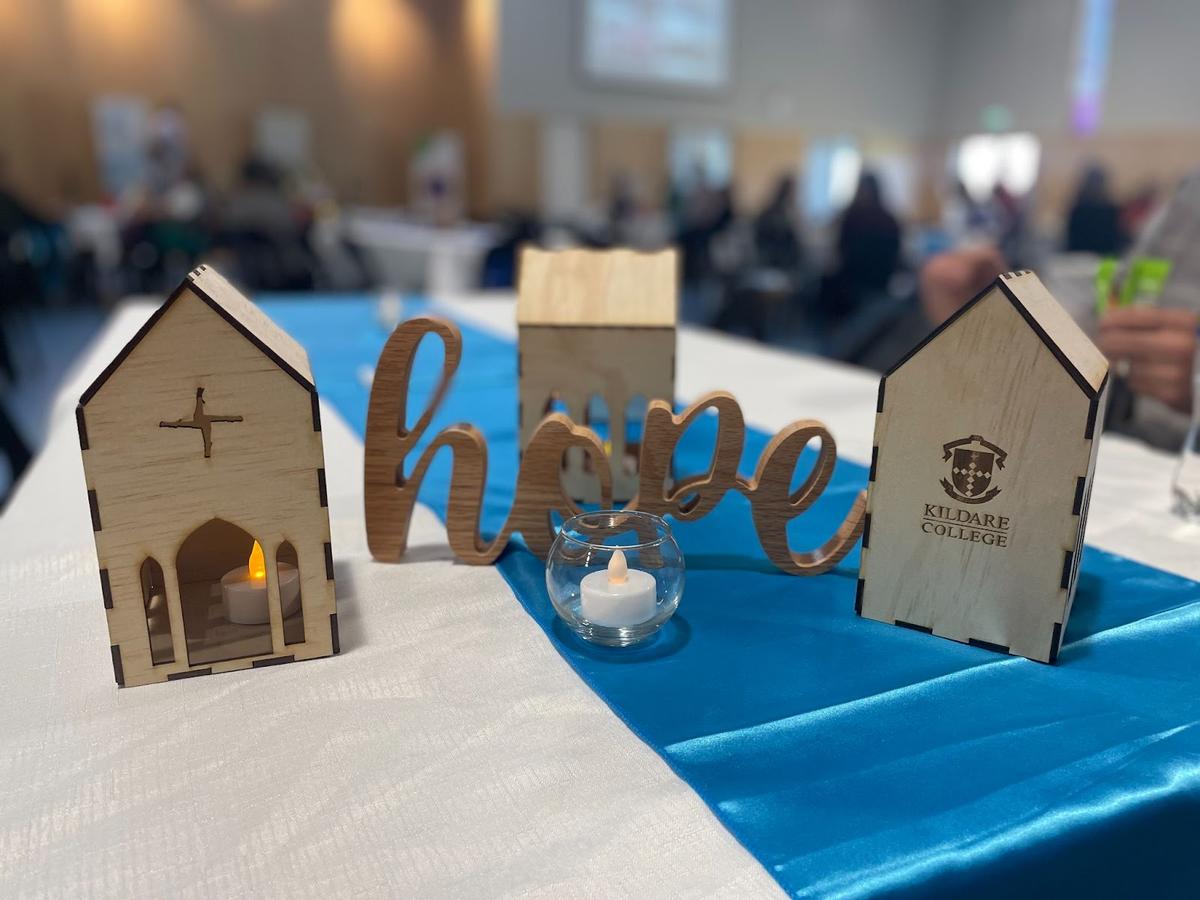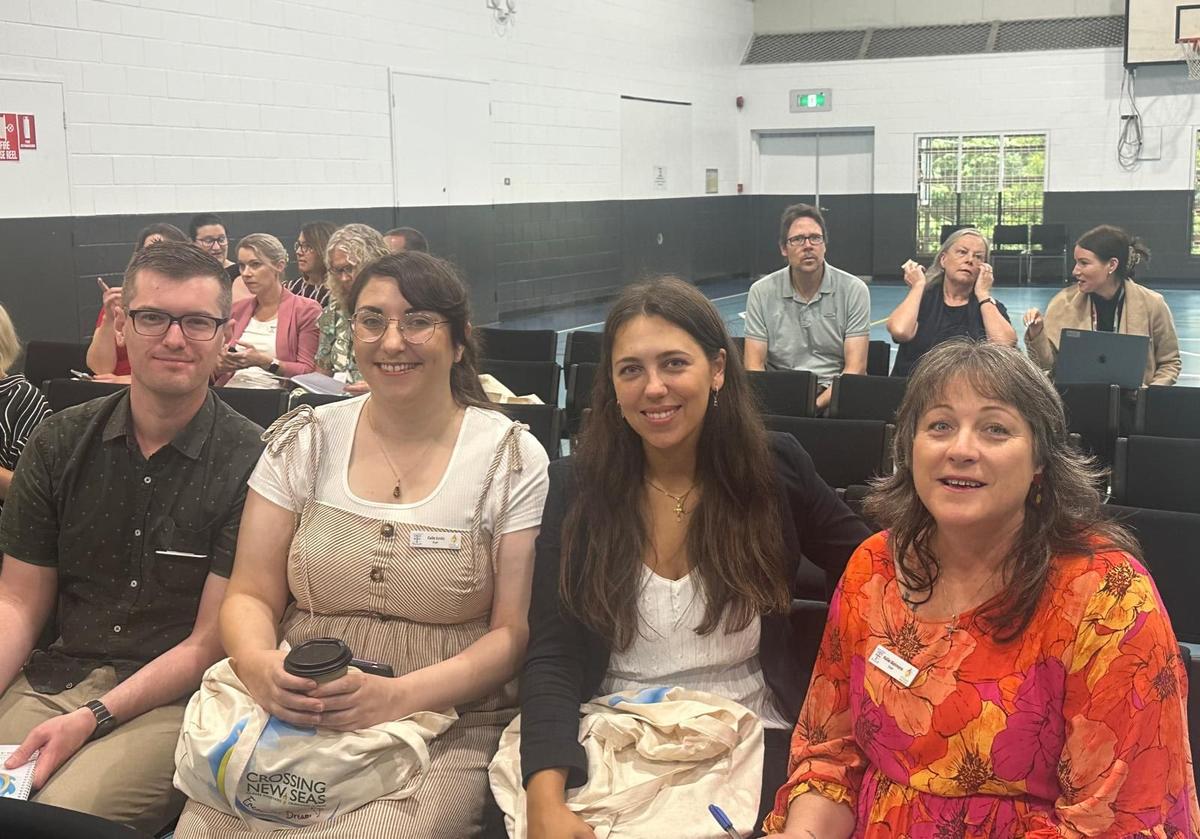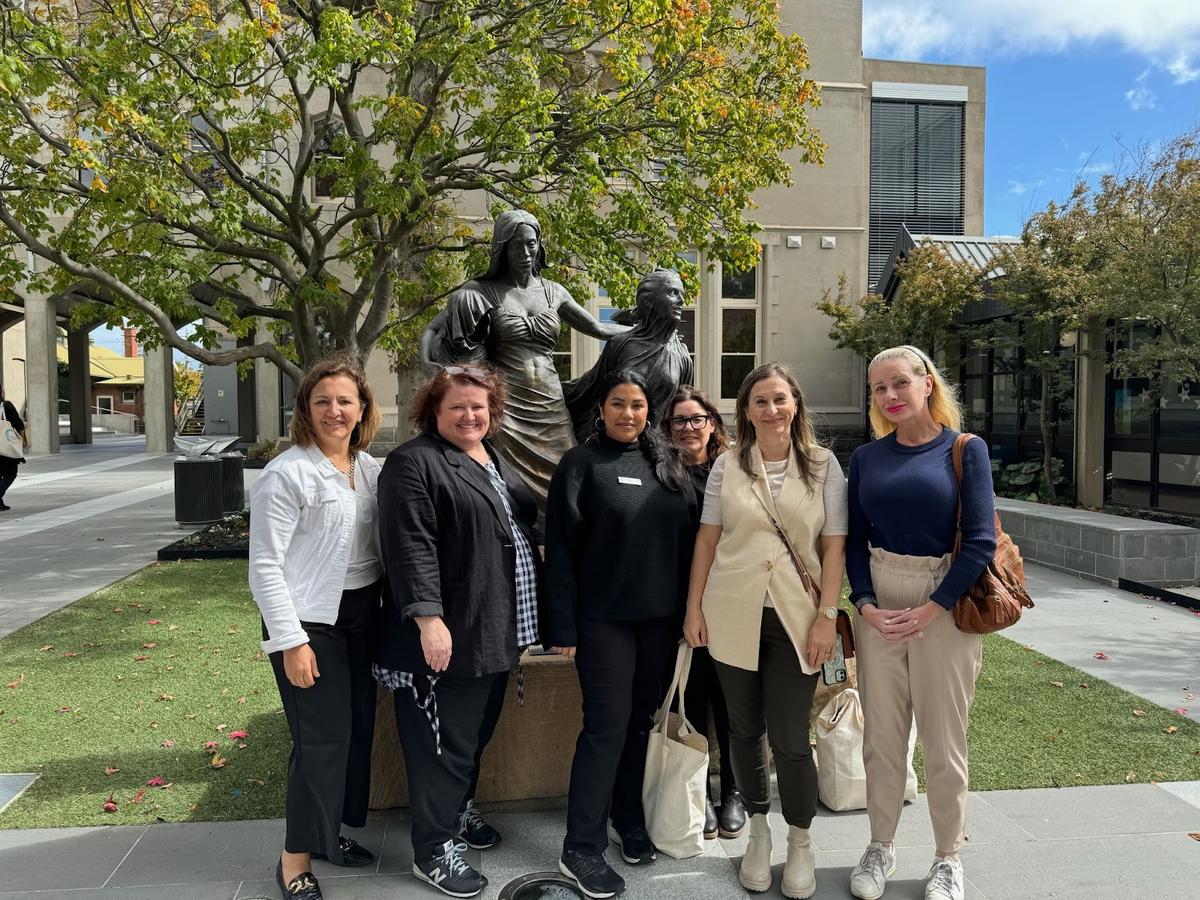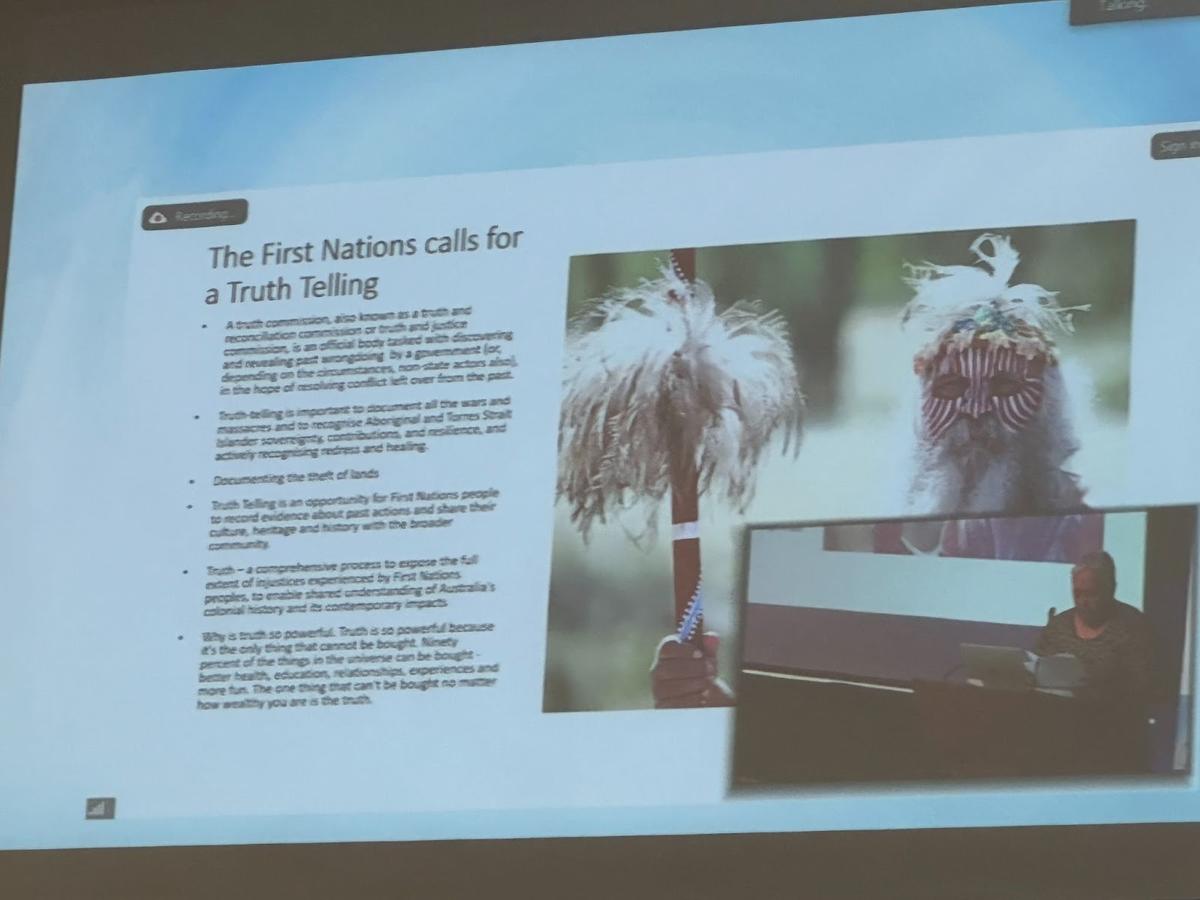Faith and Mission

F&M Article
The Kildare Ministries Conference was held during the last week of Term 1. Staff gathered in several Kildare Ministries Schools in South Australia, Queensland, New South Wales and Victoria. Below is a snippet of what we learnt, experienced and reflected upon over this time.
Staff reflections
Staff who attended the Brisbane Hub
Ms Jane Goddard, Ms Amanda Zalac, Mr Joseph Murphy, Ms Csilla and Ms Kellie Illichmann.
At the KEM 10th Year Anniversary Conference, the ideology that explored across the three days was radical inclusivity, which by nature, challenges the status quo. Panellist Francis Sullivan eloquently said, “politics reflects the way society agrees to live”. Despite this social negotiation in theory, we are witness to the disconnect between policy and practice, especially when it comes to equality with First Nations peoples. Rather than the weaponisation of difference, radical inclusivity points towards confronting the roots of inequality and allow each person to become “drivers of their own destiny”.
I agree with Professor Anne in saying that this can’t be done without the decolonisation of colonist systems – to me, this must include our curriculum. It is dangerous to homogenise First Nations peoples, however in our Australian locality and with the aim of self-determination at the forefront – identity, community and belonging are intrinsically linked. Whilst students have foundational knowledges already, as Professor Anne stated, true social harmony requires true understanding of one another. Learnings should be bidirectional. As educators, there is great work to be done in developing students’ understanding and application of Indigenous epistemologies, rather than a tokenistic approach of ‘ticking off’ requirements of the national curriculum. In saying this, this sphere also needs professional development to equip teachers with the confidence to do so, and to do so meaningfully.
In terms of social transformation, what disrupted my thinking was the fact this transformation begins on a personal scale. I have always felt way too small and way too insignificant compared to the enormous social issues we face today. I am guilty of having developed a coping mechanism of turning a blind eye to many of these issues because it there are too overwhelming. While a top-down approach is necessary, individual transformation precedes systemic change. Institutions and policies can’t be changed before people change. In today’s classrooms, scholarship is to be meaningful and authentic, and therefore should be the vehicle for advocacy. Despite uncertainties about the social trajectories of the new generation of students, I do wholeheartedly believe they are passionate, motivated, and ready, to be the drivers of this radical inclusion that generations before us were yet to embrace.
“If nothing changes, nothing changes”…
Staff Reflection by Ms Amanda Zalac
From the onset, we were warmly welcomed by staff of Star of The Sea. Once we recovered from the WOW moment of experiencing the Star of the Sea campus and facilities, we quickly engaged in what was on offer. We were further impressed by the huge technical undertaking of the three days that enabled us to connect with people from all over the eastern coastline and beyond.
The calibre of the keynote speakers and presenters were impressive and thought provoking, promoting thinking on local and global issues. In particular, Professor Gillian Triggs and Professor Anne Pattel-Gray spoke with passion and depth of experience about their lifelong drive and commitment to justice. The opportunity to also network with our peers from other Kildare Ministries, schools and organisations was not lost on us. Talking shop over a coffee and a ‘sanga’ (ok, sandwich) proved invaluable.
So, what were our takeaways from this conference? When brainstorming with our little group we agreed that the main focus was ‘justice’. In identifying and addressing injustice, we all need to understand that ‘people change not organisations’. We are being challenged to be ‘enablers of change, agitators and practitioners of radical inclusiveness’. Presenters spoke to us about their passions and areas where they are addressing injustice. Armed with this knowledge we are being challenged to make monumental change, not necessarily on a global or grand scale, but in our own communities, in whatever way possible, no matter how small. We have been challenged to commit to addressing injustice wherever we see it, to speak for our challenged and marginalised. We have been asked to set forward with a great sense of ‘hope’ and ‘go with our hearts on fire’.
Staff reflection by Ms Joanne Scully, Ms Jenny Morton and Ms Anna Ciccone
Staff who attended the Adelaide Hub.
Our ‘Encounter’ over the three days gave us the opportunity to ‘Dream’ of what could be possible in a just world. We had the opportunity to focus on the injustice in our community and consider what we will ‘Do’, when armed with hope.
Ms Bernadette Casey
Assistant to the Principal - Faith







